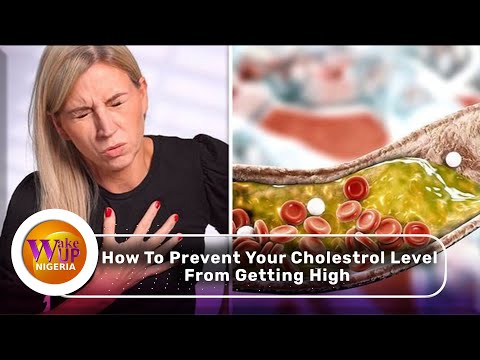In this educative segment of WUN, Nutrition consultant Amarachi Okoro gives some of the tips you need to know about having a healthy lifestyle.
Cholesterol is any of a class of certain organic molecules called lipids. It is a sterol, a type of lipid.
Cholesterol is biosynthesized by all animal cells and is an essential structural component of animal cell membranes. When chemically isolated, it is a yellowish crystalline solid
Your body needs cholesterol to build healthy cells, but high levels of cholesterol can increase your risk of heart disease. With high cholesterol, you can develop fatty deposits in your blood vessels.
Healthy and Unhealthy Cholesterol
- LDL (low-density lipoprotein), sometimes called “bad” cholesterol, makes up most of your body’s cholesterol. High levels of LDL cholesterol raise your risk for heart disease and stroke.
- HDL (high-density lipoprotein), or “good” cholesterol, absorbs cholesterol and carries it back to the liver. The liver then flushes it from the body. High levels of HDL cholesterol can lower your risk for heart disease and stroke.
- Reduce saturated fats. Saturated fats, found primarily in red meat and full-fat dairy products, raise your total cholesterol. …
- Eliminate trans fats
- Eat foods rich in omega-3 fatty acids.
- Increase soluble fiber.
- Add whey protein.
- Full-fat dairy. Whole milk, butter, and full-fat yogurt and cheese
- Red meat
- Processed meat
- Fried foods
- Baked goods and sweets
- Eggs (Mostly fried)
- Shellfish
- Lean meat
See the video below for more!
















